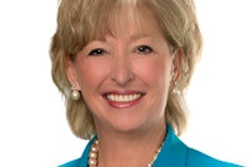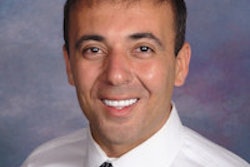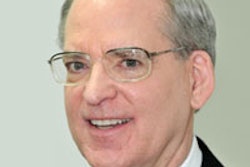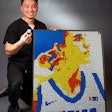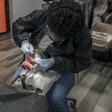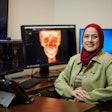
DrBicuspid.com is pleased to present the next installment of Leaders in Dentistry, a series of interviews with researchers, practitioners, and opinion leaders who are influencing the practice of dentistry and oral healthcare.
We spoke with Rhonda Savage, DDS, CEO of Miles Global, an internationally known practice management and consulting firm acquired by Dr. Savage in 2007. She began her career in dentistry as a dental assistant and graduated from Seattle University in 1985. After earning her Doctor of Dental Surgery degree from the University of Washington in 1989, she served as a dental officer in the U.S. Navy during Desert Shield/Desert Storm and was in private practice for 16 years. She is a past president of the Washington State Dental Association and an affiliate faculty member of the University of Washington School of Dentistry.
In this Q&A, Dr. Savage shares her thoughts on building and maintaining a prosperous dental practice and how to overcome the many challenges dentists face today.
DrBicuspid.com: What prompted you to go into dentistry and, eventually, consulting?
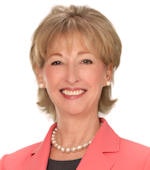 Rhonda Savage, DDS.
Rhonda Savage, DDS.Dr. Savage: I've been in dentistry for more than 35 years, starting at the age of 17, right out of high school. Growing up in Ketchikan was tough. I was looking for a job because I didn't think I'd go to college. There were six kids in our family, not a ton of money, and it was expensive living in Alaska. A local dentist said he'd train me on the job, and I loved it! I was his full-time chairside assistant for four years and front desk manager for two years. Getting a bit bored, I decided to go off to college and become a dentist.
In 1985, Seattle University awarded me a Bachelor of Science in Biology, cum laude. The degree I earned from the University of Washington School of Dentistry, with honors, thrilled me beyond measure in 1989. After I graduated in 1989, I was an active duty U.S. Navy lieutenant, attached to the Marine Corp, in Desert Shield and Desert Storm. (Did you know that Marines "lay" at attention in the dental chair?) What an incredible experience!
In 1992, I purchased a dental practice in Tacoma, WA. We all know this to be true: "You're only as successful as your team." My team was amazing! I used Linda Miles' systems, bringing in one of her consultants. The systems are what made me successful! After 13 years, I sold the practice and simultaneously opened a new practice from scratch in Gig Harbor, and within three months I was as productive as I had been in the previous practice.
During this time, I was very active in our dental society (serving as local and state president) and also had opportunities to be a volunteer zoo dentist for 12 years. I once operated on a 3,000 pound walrus while he was awake! And did you know that aardvarks have molars?
I owned my second practice for four years, but during that time I'd required three rotator cuff surgeries on my right shoulder. (I loved to jump horses ... some things we do as dentists are NOT in the best interest of our practice!) I ultimately had to sell the practice. I couldn't afford the repetitive movement.
I was turning 50 at the time and thought, "What do I want to do with the rest of my life?" I have excellent disability insurance and could've retired, but that would've been boring! Law school was an option. A law practice wanted me to do transition work for dental offices, but it was a five-year commitment: three years of law school, a year to wait for school to start, and a year to take the Bar Association test. My burning question was, "What if I didn't like it?"
That's when I gave Linda a call (in 2007). Her systems had made me hugely successful in private practice, and I'm a "systems" person. I said, "Linda, I can buy your company or I can go to law school." And she said, "How soon can you be here?"
What is your core practice management consulting philosophy?
It's a lot of fun, but consulting and speaking are a lot of work! In dentistry, you get in the patient's mouth, do the work, and you're done. But in consulting, you're never really done. Consulting is about problem solving, implementing change, encouraging, and motivating, but, most importantly, implementing systems. The most important system, I believe, is a system of "up front" accountability.
Most dentists don't have knowledge of what happens at the front desk. The front desk is the engine that drives the practice. I want them to know how to read reports, provide feedback, and in a few simple but important steps, understand their business.
Besides their business systems, which include communication and teamwork, dentists need to market. Your readers need to check out Savage Dental Marketing. It's a fresh approach to marketing. We provide high-end marketing resources for an affordable fee. The service is customized, yet also has a "do-it-yourself" automated component that is staff-driven. This leads us to the topic of patient retention. It's not enough to get them in the door -- you need to keep your patients!
What can dentists do to ensure a positive patient experience that translates into long-term loyalty?
There are several key factors. The most important thing is listening to your patients. When I was practicing, I asked my patients "yes questions" before I talked about money.
What are "yes" questions?
"Our goals are to help our patients keep their teeth for their lifetime, if possible. Also, we want to help our patients have an attractive, healthy smile and be pain-free. Are these your goals also?" (Who wouldn't say yes?)
"If we can make the dentistry fit your time and budget, is this what you want also?"
If you can be in agreement and yet sense hesitancy, you can always step back. Dentists and teams often overwhelm patients with too much information and discussion of cost -- all before you've developed a relationship with them.
A tip: If the patient's eyes glaze over (also known as "MEGO"), they aren't buying into the treatment or they don't trust you yet. Or they don't understand what you're saying. I recommend all dentists and teams read the book, titled The Art of Explanation, by Lee LeFever. It's all about keeping your ideas simple and easy to understand. To earn trust, dentists should always focus on a patient's chief complaint first. If you don't, you will lose trust right away.
When I was practicing, if a patient came in and needed a lot of dentistry, my staff would come to me and say, "Dr. Savage, I think you'll want to do a complimentary consultation with this patient."
So much of what I do as a consultant is coach on verbal skills. You have to start the patient down the "yes" path. The ability to connect with patients is so critical. Everyone communicates, but few connect. I find dentists struggle when they can't connect and are more reserved. Patients want to feel connected, and they want to feel valued.
In your two practices, how did you build and maintain a great dental team?
We were a real team. I could coach them, and they could coach me. There are times when dentists need to hear things from their team members. Are there things that are holding you back from your next level of success? Your staff knows things, and you want your staff to know they can approach you. They need to trust that they can really ... safely ... talk.
It is important in this day and age to grow your practice. Currently, you should ask your team members -- including the doctor(s) -- the following questions:
- "What are you going to do this year that you didn't do last year that will make you more successful?"
- "What habit(s) will you change?"
- "If this were your practice, what would you do to increase production and decrease overhead?"
I speak a lot on leadership skills, because most dentists don't get this training in dental school. I think graduating dentists would change what they're doing if they knew there were a better way. Sadly, we have to make mistakes before we learn. We work with new dentists to prevent errors that many suffer through. Rest assured, though, that all dental offices, whether large or small, fee-for-service or cash, suffer from the same lack of communication, business systems, and teamwork issues.
Do you want to grow your practice? Every practice can grow!
Can you delegate tasks? The more you can delegate in this economy, the more successful you will be, but it takes training. Finding time to train is crucial. The biggest challenge for dentists is finding time to train. Realistically, you should be focusing on your patients and the business at hand. Do you focus? That is the reason many dentists are successful: the ability to focus.
If you remember nothing else from this interview, know this: "Every practice has growth in it."
What are some common challenges your clients are dealing with today?
Getting the new patient numbers they want, and ensuring the quality of new patients.
But the question is, do you need to market? How much can you glean by going in and working on recall? If you're not keeping the ones you've got, you've got a problem. If they're not coming back, why not? Sometimes patients think that if you don't call them, you don't care. Also, are you keeping them waiting? Is the atmosphere in the practice negative, with too much gossip? Does the doctor have a negative attitude? These are antimarketing practices.
I see practices struggle because the doctor is involved with financial arrangements.
We see kind-hearted doctors giving courtesies and discounts. Doctors: If you are giving away a lot of dentistry and your staff hasn't gotten raises or bonuses in a while, resentment will build. Your staff can start thinking, "Great, there goes my raise."
The bottom line: Is there a way to change to be more profitable in a PPO world? Absolutely. Begin by training and delegating. Delegate, delegate, delegate. If you cannot delegate, you will not grow. Ask yourself: On a scale of 1 to 10, how well does your team do at setting the stage for case acceptance, with the intraoral camera and within the hygiene appointment?
In addition to consulting and running multiple businesses, you also write and lecture on a regular basis -- how do you balance it all?
I have great people in my life, and I'm very thankful. I have a wonderful husband, an amazing daughter, and my outstanding team at Miles Global. When I look at what we do, it's all about goal setting, with a focus on accomplishments. That's what satisfies me. I am always trying to add more to what we know.
Is your team willing to grow and change? I believe we should become "comfortable being slightly uncomfortable." You can't sit on your laurels in this day and age and remain competitive in this world.
In addition to growth and change, time management skills are crucial. I personally believe you should delegate, delegate, delegate.
The key is to ask yourself: "What is it about me that's holding me back from the next level of success?" A huge challenge that holds practices back from growth is resistance to change.
As a consultant, I believe it's our job to not only be a partner in the business of growing your practice but to bring your practice new ideas and new ways of looking at things. As consultants, we need to do that too. That is what sets us apart and makes us valuable.




